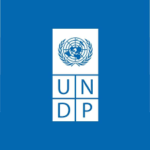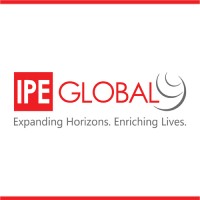
Website UNDP
Background
Diversity, Equity and Inclusion are core principles at UNDP: we value diversity as an expression of the multiplicity of nations and cultures where we operate, we foster inclusion as a way of ensuring all personnel are empowered to contribute to our mission, and we ensure equity and fairness in all our actions. Taking a ‘leave no one behind’ approach to our diversity efforts means increasing representation of underserved populations. People who identify as belonging to marginalized or excluded populations are strongly encouraged to apply. Learn more about working at UNDP including our values and inspiring stories.
UNDP does not tolerate sexual exploitation and abuse, any kind of harassment, including sexual harassment, and discrimination. All selected candidates will, therefore, undergo rigorous reference and background checks.
UNDP has been working in India since 1951 in almost all areas of human development. Together with the Government of India and development partners, we have worked towards eradicating poverty, reducing inequalities, strengthening local governance, enhancing community resilience, protecting the environment, supporting policy initiatives and institutional reforms, and accelerating sustainable development for all.
With projects and programmes in every state and union territory in India, UNDP works with national and subnational government, and diverse development actors to deliver people-centric results, particularly for the most vulnerable and marginalized communities. As the integrator for collective action on the Sustainable Development Goals (SDGs) within the UN system, we are committed to supporting the Government of India’s national development vision and priorities and accelerating the achievement of the SDGs for the people and the planet.
UNDP India’s new Country Programme (2023-2027) builds on our prior work and aims to provide an integrated approach to development solutions in three strategic portfolios:
- Strong, accountable and evidence-led institutions for accelerated achievement of the SDGs.
- Enhanced economic opportunities and social protection to reduce inequality, with a focus on the marginalized.
- Climate-smart solutions, sustainable ecosystems and resilient development for reduced vulnerability.
- South-South cooperation, gender equality and social inclusion are promoted across the pillars. The programme is supported by a framework of renewed partnerships and blended finance solutions, strategic innovation and accelerator labs, and data and digital architecture.
You are invited to join a team of future-smart development professionals to support India in achieving the national and globally agreed goals. As part of the UNDP team, your focus will be to work with diverse stakeholders to find country-specific solutions that lead to sustainable development and reach those furthest behind first.
UNDP has been a long-standing supporter of India’s South South Cooperation. The Ministry of External Affairs and UNDP signed a Strategic Partnership Framework Agreement (PFA) in March 2012, with cabinet’s approval, with a view to strengthen the role of SSC in leveraging India’s development experience, knowledge, expertise, including via UNDP’s global development network. The PFA is positioned to strengthen strategic partnerships with the global south and draws on India’s recognized role as a global leader, an economic power, and a major contributor to international development cooperation and public good. The key priorities in the PFA include a) support to south- south cooperation; b) support to African countries; c) strengthening engagement on the multilateral development agenda.
Early engagements under the PFA included supporting the Ministry of Human Resources Development for establishing the International Centre for Human Development (IC4HD) in August 2012, and an MOU with the Election Commission of India (ECI) to facilitate South-South learning on election management and administration. More recently, key SSC priorities supported by UNDP include sharing India’s experience on digital health systems, in particular the eVin and CoWIN platforms, and India’s international and multilateral efforts to tackle climate emergency through the International Solar Alliance (ISA) and the Coalition for Disaster Resilient Infrastructure (CDRI). UNDP has also supported the Government of India in sharing its strong experience of SDGs localization internationally and is engaged in supporting the L.I.F.E (Lifestyles for Environment ) Initiative for behavioural change. Given the work on digital health and the increasing prominence of Digital Public Goods and Digital Public
Infrastructure, these new avenues are also likely to form part of the remit for this role in the context of SSC.
Recent discussions between MEA and UNDP have agree that further cooperation for SSC can be explored under the remit of the PFA.
UNDP India country office, is looking to strengthen this momentum though its offer of integrated support on SDG and climate financing to governments and private sector partners. As domestically mobilized resources form the bedrock of SDG and climate action, UNDP’s services include support for strengthening government’s institutional and administrative frameworks to be able to better deliver integrated climate policy and programming, tap into innovative sources of finance, promote mainstreaming of climate risk and SDG alignment in the financial system and investments of the private sector, and account transparently for climate related services, while also strengthening parliament and civil society’s advocacy and accountability roles. There is an increasing urgency to ensure that policies, frameworks, and strategies are responsive to the needs, priorities, and interests of all people, including women, the poor, youth, and minorities and others who are particularly vulnerable to climate change impacts and that they participate in the governance of a climate change response, i.e., in all stages of policy formulation, programme implementation and processes.
The Analyst will under the supervision of the Advisor/ Team Leader, be expected to drive the work of UNDP India country office on SDG financing by working closely with state offices and the inclusive growth team in addition to supporting the rollout of the Climate Finance Network (CFN) in coordination with the environment unit. The CFN will serve as a peer-to-peer network and as a knowledge management and technical support facility to support Ministries of Finance with the engagement of sector ministries and sub-national governments to identify and scale up climate finance innovations in the region.
The Analyst will be expected to ideate on a variety of financing instruments and bring together relevant stakeholders. These instruments include SDG/ green aligned thematic bonds, pay for success instruments, municipal financing and innovative climate financing mechanisms.
A flagship engagement of the UNDP India country office has been the Sustainable Finance Collaborative. Launched in August 2020 it was an effort to bring together leading stakeholders in the financial eco-system with a view to ideate, collaborate and contribute to the Government’s sustainable finance agenda. Drawing from the Collaborative, the Ministry of Finance, has formulated a government-led Sustainable Finance Taskforce. UNDP has been appointed as the secretariat to the Taskforce and has helped the Taskforce deliver on its agenda of drawing a roadmap and taxonomy of sustainable activities and a list of recommendations to strengthen sustainability linked corporate disclosures, enhance capital flows towards sustainable activities and build resilience to climate change in the financial sector. The Analyst will be expected to drive forward this work.
Candidate will be expected to drive the work of the UNDP India country office around SDG and Climate Financing, this will span public and private financing, as well as innovative financing instruments/ mechanisms. The role also includes coordination and close working relationships with other UNDP teams (state teams/ environment unit and the inclusive growth unit); strategizing on UNDP offers on SDG and climate finance; preparing well researched proposals and pitches; implementation support in coordination with partners.
Duties and Responsibilities
Under the supervision of Advisor, SDG Finance, the Analyst will perform following duties:
Conceptualization and development of financing instruments and mechanisms
- Provide technical advisory support on innovative finance to state offices, UNDP teams and government partners as needed.
- Develop clear country offer for services that can be delivered through state offices
- Strengthen partnerships with country experts and regional stakeholders working on climate change finance and SDG Finance with a focus on thematic debt instruments and other sources of innovative finance
- Identify and disseminate lessons and good practices
- Develop partnerships with country and regional networks to leverage private sector investment into the SDGs
- Carrying out basic due diligence, evaluating regulatory constraints (if any), market opportunities and determining overall financial and social attractiveness for innovative financing mechanisms
- Identifying key risks and mitigation factors
- Using current available information to map, analyze and interpret current and future potential for innovative finance instruments – including identifying trends and areas of growth. Develop and lead implement strategy for outreach accordingly
Contribute to the development and rollout of SDG Finance offerings and frameworks
- Support the country office in its engagement on SDG Financing, with Governments, the UN country team, IFIs and development partners broadly, including in support of the roll out of national integrated financing frameworks (INFFs);
- Support the offer development and rollout of services on SDG/ Climate Budgeting, Costing and
- Tagging for state offices and government counterparts.
- Support the incorporation of gender equality and human rights-based approaches in financing strategies and programming work;
- In partnership with stakeholders, build on the work of the Sustainable Finance Collaborative and the Ministry of Finance led Task Force on Sustainable Finance to further progress on disclosures, resilience, taxonomy development and the broader sustainable finance roadmap.
Support the rollout of the workstreams of Climate Finance Network for the India country office
- Provide technical advisory support for the rollout of the FCDO supported Climate Finance Network (CFN) in India.
- Work closely with the Ministry of Finance and the Ministry of Environment, Forests and Climate
- Change to advance the work of the CFN and its 6 workstreams (including (i) climate informed planning and budgeting (ii) access to international climate finance (iii) innovative financing instruments etc.).
- Support with development of work plans and managing workflow of agencies engaged including quality assurance and guidance.
- Implements project work plan and ensures that the project remains within the tolerance level of the approved work plan
- Provide technical guidance to project consultants and project executing partners who should provide similar outputs
- Support in providing technical input to working documents, studies and technical reports as required in project activities on the topics of climate finance
Strengthen strategic partnerships and mobilise resources for country office programming on climate and SDG financing
- Support UNDP CO to maintain and strengthen liaisons with relevant partners, including the Government of India, state governments, development partners, private sector and other actors supporting climate change and SDG finance initiatives, including stakeholders involved in the Sustainable Finance Collaborative
- Identify further opportunities for the country office to collaborate with UNDP’s Bangkok Regional Hub on SDG Financing related areas
- Develop proposals and project documents, for the SDG Finance unit and in partnership with other UNDP teams including state offices, inclusive growth and the environment unit in an effort to mobilize resources for further programming.
- Identify avenues to mobilize resources to support UNDP offerings on SDG and Climate Finance by engaging with potential partners including private sector partners, philanthropic institutions, family-held funds, and Government departments.
- Lead development of proposals to pitch to potential partners/ donors and crystallize value proposition.
Operations related responsibilities
- Lead preparation of periodic (quarterly/ semi-annual) progress reports for donors/ partners
- Develop annual work plans as needed
- Curate and coordinate various meetings, convenings and workshops as needed
Any other responsibilities as assigned by supervisor/ manager
Core competencies:
- Achieve Results: LEVEL 1: Plans and monitors own work, pays attention to details, delivers quality work by deadline
- Think Innovatively: LEVEL 1: Open to creative ideas/known risks, is pragmatic problem solver, makes improvements
- Learn Continuously: LEVEL 1: Open minded and curious, shares knowledge, learns from mistakes, asks for feedback
- Adapt with Agility: LEVEL 1: Adapts to change, constructively handles ambiguity/uncertainty, is flexible
- Act with Determination: LEVEL 1: Shows drive and motivation, able to deliver calmly in face of adversity, confident
- Engage and Partner: LEVEL 1: Demonstrates compassion/understanding towards others, forms positive relationships
- Enable Diversity and Inclusion: LEVEL 1: Appreciate/respect differences, aware of unconscious bias, confront discrimination
People Management competencies:
UNDP People Management Competencies can be found in the dedicated site.
Cross-Functional & Technical competencies:
2030 Agenda: Partnerships
SDG Finance: Innovative Finance: ESG Standards
2030 Agenda: Engagement and Effectiveness
Strategic Policy Engagement: Financing for Development incl: integrated national financing frameworks
2030 Agenda: Planet
Nature, Climate and Energy: Climate Change Policies: Climate Finance
Business Management
- Partnerships Management: Ability to build and maintain partnerships with wide networks of stakeholders, Governments, civil society and private sector partners, experts and others in line with UNDP strategy and policies
- Project Management: Ability to plan, organize, prioritize and control resources, procedures and protocols to achieve specific goals.
Business Direction and Strategy
- Systems Thinking: Ability to use objective problem analysis and judgement to understand how interrelated elements coexist within an overall process or system, and to consider how altering one element can impact on other parts of the system
Required Skills and Experience
Education:
- Advanced university degree (master’s degree or equivalent) in in development finance/ finance/ engineering/ economics/ or related fields, or
- A first-level university degree (bachelor’s degree) in combination with an additional two years of qualifying experience will be given due consideration in lieu of the advanced university degree
Experience:
- Minimum 2 years (with Master’s degree) or 4 years (with Bachelor’s degree) of relevant experience at the national or international level in strategy or development consulting firms/ impact investing/ financial services/ public finance /corporate finance / or debt markets/climate and sustainable finance oriented roles.
- Experience in working with development partners, government or private sector on programming in relation to sustainable development, climate change finance, SDGs finance, financing instruments, debt financing, public finance or development finance
- Good inter-personal and team-building skills
- Has excellent oral communication skills and conflict resolution competency to mediate inter-group dynamics and mediate conflicts
- Ability to work with a multidisciplinary and multicultural team
- Strong analytical skills
- Solid networking capacity
- Solid skill in providing project advisory services, monitoring and evaluation
- Demonstrated ability to work effectively with a wide range of stakeholders
- Demonstrated ability to work effectively under minimal supervision;
- Good skills in organization and management;
- Excellent skill in using computers and office software packages (MS Word, Excel, etc), advance knowledge of spreadsheet and database packages
- Ability to make briefs and concept notes in short turnaround times
- Desired areas of specialization: public finance/ public financial management/ climate change finance/ sustainable finance / impact investing
- Experience of working with the government, IFIs/ MDBs, financial institutions, development partners, private sector, universities on climate and sustainable finance will be an advantage.
- Experience in project management in the area of climate change, natural resources, energy, climate/sustainable finance, green economy would be highly desirable
Required Language:
- Fluency in written and spoken English is an absolute necessity.
Note: Remuneration starting at INR 19,95,948/- (Annual) INR 1,66,329/- (Monthly) as per the scale depending on qualifications and experience. The remuneration is excluding 8.33% pension amount paid over and above the salary
To apply for this job please visit estm.fa.em2.oraclecloud.com.





